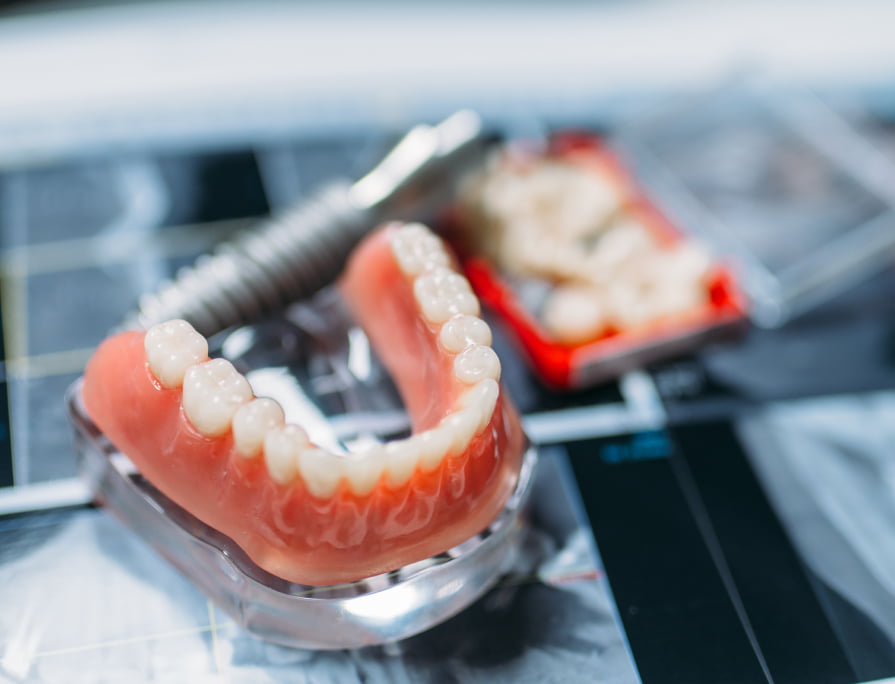
New Smile.
New Life!
New Smile.
New Smile.

Dental implants have marked a paradigm shift in the field of restorative dentistry, offering a solution that not only replicates the aesthetic appearance of natural teeth but also their functionality. These titanium structures, when expertly placed into the jawbone, act as robust foundations for artificial teeth, effectively restoring the patient’s ability to chew and speak comfortably while also maintaining the natural structure of their face. However, the transformative potential of dental implants is not a one-size-fits-all solution. The success of this advanced dental procedure hinges significantly on the meticulous assessment of potential candidates.
The process of dental implantation is intricate and requires a harmonious interaction between the implant and the human body. For the implant to successfully integrate with the jawbone—a process known as osseointegration—it is imperative that the patient’s overall oral and general health is conducive to healing and bone growth. This is where the role of candidate assessment becomes paramount.
During the evaluation phase, dental professionals undertake a comprehensive analysis of various factors that are critical to the success of the implant. This includes an assessment of the patient’s gum health, as gums play a vital role in supporting the implant structure. Healthy gums free from periodontal disease are essential to prevent post-surgical complications and ensure the longevity of the implant.
Equally important is the density and quality of the jawbone. Since the dental implant is anchored into the jawbone, sufficient bone density is crucial to provide stability and support for the implant. In cases where bone density is insufficient, additional procedures such as bone grafting may be required, adding complexity and duration to the treatment process.
Moreover, the assessment extends beyond oral health. A patient’s overall medical history, including conditions like diabetes or habits such as smoking, can significantly impact the healing process and the success rate of the implant. Uncontrolled systemic conditions or lifestyle factors can impede healing, increase the risk of infection, and affect the osseointegration process.
The candidate evaluation also involves considering the patient’s commitment to maintaining oral hygiene post-implantation. Dental implants require meticulous oral care and regular dental check-ups to ensure their longevity. A patient’s willingness and ability to adhere to these oral hygiene practices are crucial for preventing implant-related complications and ensuring the long-term success of the procedure.
A successful implant relies heavily on a robust foundation, necessitating healthy gums free of periodontal disease. Equally important is the jawbone’s density, which must be sufficient to firmly support the implant. In instances of inadequate bone density, bone grafting may be proposed as a solution.
The longevity of dental implants is closely tied to diligent oral hygiene. Regular brushing, flossing, and dental visits are essential to avert complications and maintain the implant’s condition.
Tobacco usage can significantly impede post-operative healing and decrease the success rate of implants. Likewise, uncontrolled diabetes may slow healing and heighten infection risks.
Ideal candidates should be in overall good health to safely undergo surgical procedures and navigate the healing process, which may extend over several months.
Selecting appropriate candidates for dental implants involves a thorough evaluation conducted by experienced implant dentists. This assessment includes reviewing the patient’s medical history, oral care habits, and general health. Considerations such as age, bone density, and chronic health conditions are also integral to this process.
Dental implants from Texas Sedation Dental & Implant Center offer a transformative option for those with missing or damaged teeth. Understanding the criteria for implant candidacy enables patients to make well-informed decisions about their dental health. If dental implants are on your mind, a consultation with our experts can help determine if you are an ideal candidate, setting you on the path to a brighter, more confident smile.
Can anyone receive dental implants?
What makes a good candidate for dental implants?
Are implants an option for those with teeth lost to periodontal disease?
Is there an age limit for dental implants?
Texas Sedation Dental & Implant Center can perform minor, or major procedures for patients in need. Our goal is to provide exceptional oral health, overall, for all. It’s recommended to schedule an appointment with your Dentist if you are experiencing any of concern. To learn more about bone grafting, or dental implants, contact us today at our Longview (903)704-0154. or Tyler Office (903)597-2201.